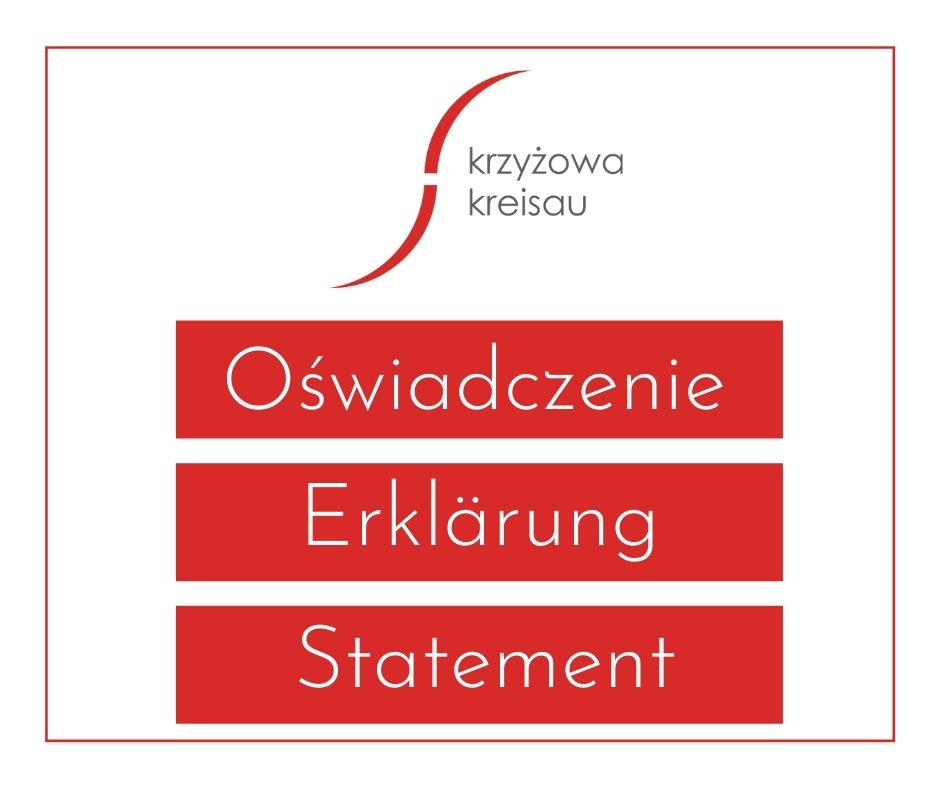
Dramatic scenes have been taking place on Poland's border with Belarus for many weeks now. As is the case with many issues, Polish society is divided and polarised. Some people are outraged at the ruthless actions of the Polish authorities and uniformed forces towards the refugees, while others defend these actions, denying their brutal nature, or maintaining that only a tough stance can stop the problem escalating under Alexander Lukashenko's regime and the drama of successive groups of refugees, who are growing in number.
We realise that the situation is difficult and complicated. We know that there are no simple recipes for how to defend the border effectively and how to resist the destructive actions of the Belarusian regime without breaching national and international law and without violating human rights. We live in a world of difficult choices. So what should we do? How should we behave?
We want to look for the answer to this question in the testimony of historical figures whom we set as role models for young people from Poland, Germany and many other European countries during our educational projects. These are heroes of the Polish resistance movement during World War II, such as Irena Sendler and Witold Pilecki. Sendler constantly risked her life to save hundreds of children from the Warsaw Ghetto, while Pilecki voluntarily went to Auschwitz concentration camp to be a witness to the cruelty of the German occupier and to support the Polish resistance. Both of them - in very extreme conditions - made choices. These choices involved saving the lives of others and risking their own safety.
We are also looking for answers in the historical heritage of Krzyżowa. During the Second World War, a German anti-Nazi group, known as the Kreisau Circle, was active here. Its member, Peter Graf Yorck von Wartenburg wrote: "Acts that are morally indefensible cannot be justified by the interests of the state". And its co-founder, Helmuth James von Moltke, thinking of the suffering of the victims of the Third Reich, asked himself: "Can I know about it and still sit at my table in a heated room and drink tea? Don't I also become guilty because of this? What do I say when they ask me: 'What were you doing at that time? They both gave their lives for being true to their values.
Finally, the legacy of those who resisted the Communist dictatorship and at the same time worked for Polish-German reconciliation is important to us. They laid the fundaments of our Foundation. One of these people was Władysław Bartoszewski. It is worth recalling two of his statements: "We belong to a cultural circle whose most important ethical concepts are shaped by Christianity. That is, we do not throw old people off the Tarpeian rock, we respect children'. And the one perhaps best known: "It's worth being honest, although it doesn't always pay off. It pays off to be dishonest, but it isn't worth it.'.
The witness of these people is a model and a guide for us. It liberates in us what is greatest and best. It calls us to be faithful to Christian and humanist values. Therefore, we join the voices calling for absolute respect for national and international law and human rights by the Polish authorities and uniformed forces. We stand in solidarity with all those who provide direct assistance to people in need at the border. We assure you that in our educational work we will continue to invoke the testimony of the above-mentioned people and point to the fact that the test of our humanity is the attitude to another human being, especially the one who needs help.
The Management Board of the Krzyżowa Foundation for Mutual Understanding in Europe
Dorota Krajdocha, DSc Robert Żurek



